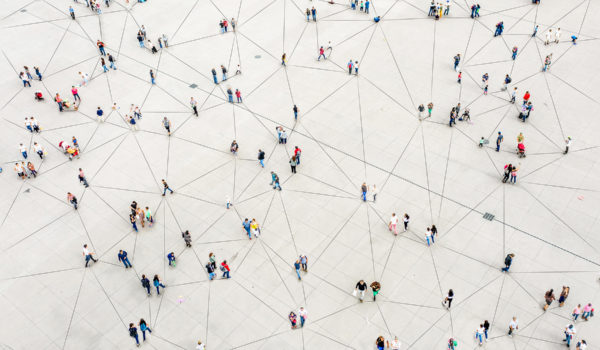The United States Department of Justice (“DOJ”) recently filed a Statement of Interest in Support of the Temple Baptist Church’s lawsuit challenging the City of Greenville’s ban on drive-in church services under the First Amendment’s Free Exercise Clause. DOJ’s filing provides some insights into the chief federal law enforcement agency’s current perspective on the application of social distancing orders to religious gatherings.
The suit, Temple Baptist Church v. City of Greenville, filed in the federal district court for the Northern District of Mississippi, is one of a number of recent challenges to orders restricting religious gatherings as part of the broader social distancing requirements to combat the spread of COVID-19. In early April, a federal district court in Kentucky issued an ex parte temporary restraining order against restrictions on drive-through Easter services on First Amendment grounds. Also in early April, the Kansas Supreme Court dismissed a suit challenging the Governor’s extension of mass gathering restrictions to religious gatherings, finding the suit was deficient on procedural grounds.
No court orders have yet been issued in the Temple Baptist Church case. The Complaint was filed on April 10, 2020. The church filed a motion for a temporary restraining order on April 11, but the city has not yet filed any substantive response. The Complaint challenges the city’s order, entitled, “Executive Order Regarding Church Services,” that extended state social distancing orders to prohibit in-person, drive-in church services. Under previously existing state orders, religious services were designated “essential” services that could continue to be conducted in compliance with the Centers for Disease Control (“CDC”) social distancing guidelines.
On April 14, 2020, the DOJ filed a Statement of Interest supporting the position of Temple Baptist Church. The Statement noted that, as alleged in the Complaint, attendees listened to the service over FM radio and remained in their vehicles, with the windows closed, at all times, including on April 8, 2020, when the police began enforcing the order, and issuing $500 fines to attendees.
DOJ’s Statement argued that the drive-through services ban, as described in the Complaint, should be subject to strict scrutiny because it selectively imposed burdens on religious services that were not imposed on other activities deemed “essential” by the state’s orders, including drive-in restaurants. Quoting the Complaint, DOJ’s Statement emphasized that “the city appears to permit citizens to sit in a ‘car at a drive-in restaurant with [their] windows rolled down, but not ‘at a drive-in church service with [their] windows rolled up.”[1]
DOJ’s Statement acknowledges that “the Constitution does not hobble government from taking necessary, temporary measures to meet a genuine emergency,”[2] and that “courts reviewing a challenge to a measure responding to the ‘society-threatening epidemic’ of COVID-19 should be vigilant to protect against clear invasions of constitutional rights while ensuring that they do not ‘second-guess the wisdom or efficacy of the measures’ enacted by the democratic branches of government, on the advice of public health experts.”[3] However, DOJ argued that notwithstanding this deference, “if the Court determines that the city’s prohibition is not in fact the result of a neutral and generally applicable law or rule,” traditional strict scrutiny rules should still apply, and require the city to “demonstrate that prohibiting the small church here from holding the drive-in services at issue here – services where attendees are required to remain in their cars in the church parking lot at all times with their windows rolled up and spaced consistent with CDC guidelines – is the last restrictive means of furthering a compelling interest.”[4] The DOJ’s Statement concludes, “[a]s of now, it seems unlikely that the city will be able to carry that burden.”[5]
Further developments in this and other cases bear monitoring. DOJ’s Statement, by its own terms, is based solely on the allegations in the church’s Complaint and does not address any differing view of the facts that may be presented by the defendants. Nonetheless, the Statement provides a potential roadmap for how DOJ will evaluate restrictions on religious gatherings in the context of the current pandemic.
For more information, please contact Jason Renzelmann or any attorney in Frost Brown Todd’s Business & Commercial Litigation or Government Services Practice Groups.
To provide guidance and support to clients as this global public-health crisis unfolds, Frost Brown Todd has created a Coronavirus Response Team. Our attorneys are on hand to answer your questions and provide guidance on how to proactively prepare for and manage any coronavirus-related threats to your business operations and workforce.
[1] United States’ Statement of Interest in Support of Plaintiffs at 9, Temple Baptist Church v. City of Greenville, Case No. 4:20-cv-64-DMB-JMV (filed April 14, 2020) (italics in original).
[2] Id. at 4 (citing Jacobson v. Commonwealth of Mass., 197 U.S. 11, 29 (1905).
[3] Id. at 5 (quoting In re Abbott, 2020 WL 1685929 (5th Cir. April 7, 2020)).
[4] Id. at 8, 11-12.
[5] Id. at 12.

